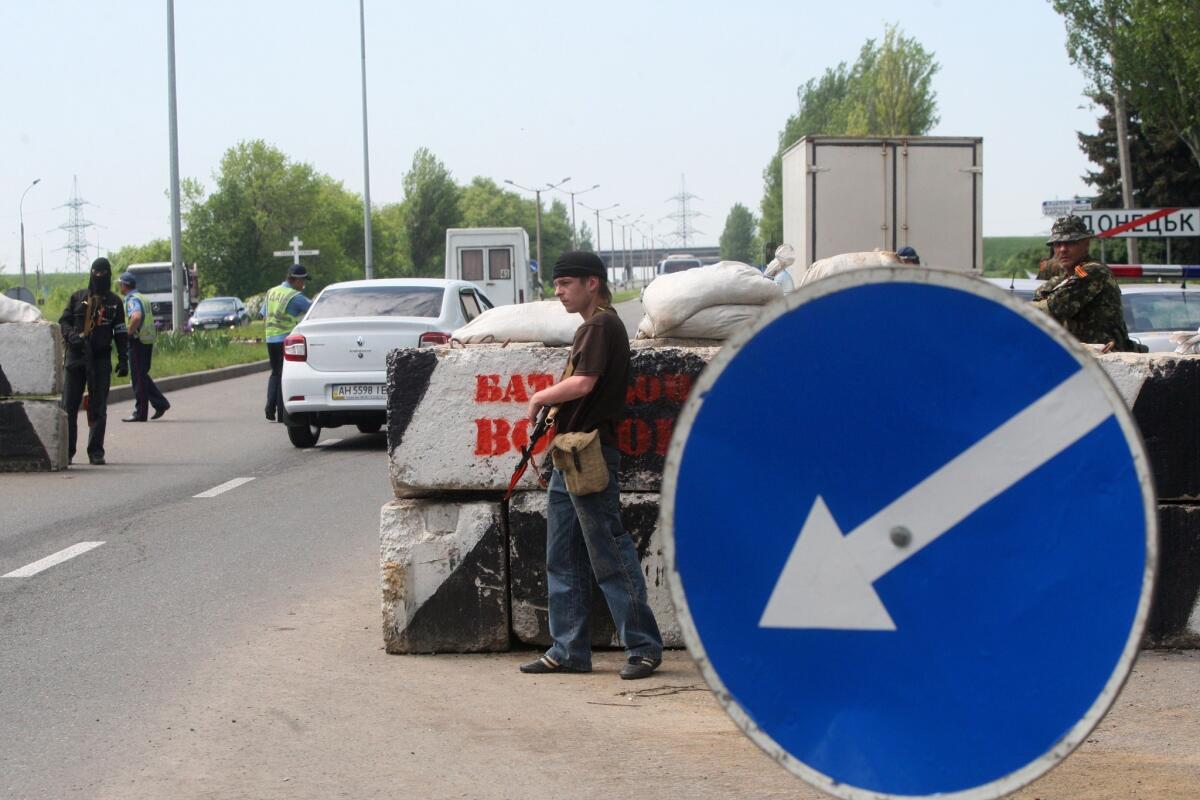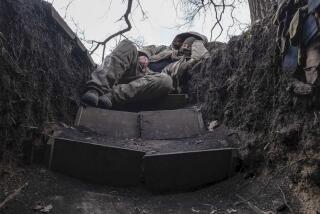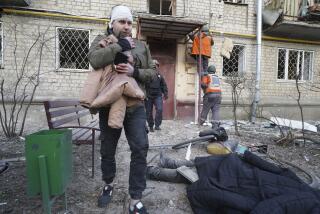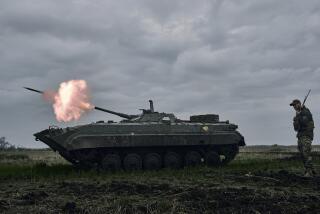Ukraine retakes positions from separatists as unity talks stall

Ukraine’s beleaguered “anti-terrorism operation” retook control of two strategic positions in eastern Ukraine from pro-Russia gunmen, reportedly without inflicting civilian or insurgent casualties, acting President Oleksandr Turchynov told lawmakers Thursday.
The operation that drove the separatists from positions outside of Kramatorsk and Slovyansk in the turbulent Donetsk region made good on the government’s threat a day earlier to continue efforts to oust the insurgents until they lay down their arms and agree to negotiate their grievances.
But the government’s use of force also defied Russia’s insistence that the interim Ukrainian leadership withdraw its forces from the embattled east if it expects to resolve the conflict and create conditions for a legitimate presidential election on May 25.
The claimed recovery of the two flashpoints occurred after so-called “unity talks” in Kiev, the capital, stalled as soon as they started. Government officials, former Ukrainian presidents, spiritual leaders and other civil society representatives met for more than two hours Wednesday but accomplished little more than pointing out the unpromising task of resolving differences between forces still engaged in armed combat.
Turchynov opened what is intended to be a series of round-table meetings to discuss constitutional changes that would cede more power to Ukraine’s disparate regions. But the first session didn’t include representatives from the pro-Russia rebel factions, as the interim president said the government won’t negotiate with those who have been occupying government facilities and holding a dozen towns and cities at gunpoint.
Leaders of the two eastern regions that declared their independence earlier this week, Donetsk and Luhansk, have said they won’t bargain with Kiev on their status and want only that Ukraine withdraw its troops from their proclaimed “peoples republics.”
Separatist leaders in both regions also have said they won’t facilitate voting in the presidential election of what they now regard as a foreign state.
In his brief address to the Ukrainian parliament in Kiev on Thursday, Turchynov said government forces destroyed what he described as two insurgent “bases,” likely a reference to the fortified roadblocks that have been erected on the outskirts of separatist-held towns in the Donetsk and Luhansk provinces.
He said there were no deaths or injuries inflicted during the operation, although one man was arrested for having an anti-tank grenade launcher.
There was no immediate statement by the separatists, who have been toning down their militant rhetoric since Sunday’s controversial referendums were met with silence by their purported Kremlin backers. The votes reportedly drew more than 90% support for independence from Kiev’s rule, but few opposed to secession took part in the hastily organized balloting that Ukrainian, European, U.S. and U.N. officials say has no legal force.
A Kremlin statement issued the day after the votes organized and supervised by the armed militants said the Russian leadership “respects” the expressed will of the people but made no comment on the referendums’ legitimacy. Neither has Moscow responded to the Donetsk insurgents’ appeal for annexation to Russia.
Russian President Vladimir Putin, whom Kiev and its Western allies accuse of fomenting the turmoil in eastern Ukraine, has made no comment on the separatists’ actions since asking them more than a week ago to postpone the votes and allow time for diplomatic efforts to show progress.
The unity talks are among the proposals of a “road map” to peace drafted by the Organization for Security and Cooperation in Europe, the only transatlantic security bloc that includes Russia, Ukraine, the European Union and the United States.
Putin has expressed confidence in the OSCE to mediate the crisis. The 57-nation alliance is chaired by neutral Switzerland, giving the Kremlin an opportunity to work through diplomats outside of the EU and other Western alliances that Russians might perceive as favoring Ukraine’s pro-European politicians.
The OSCE has committed to deploying more than 300 election monitors for the presidential vote and already has about 200 observers in the restive eastern and southern regions of Ukraine as part of the international community’s effort to “de-escalate” the crisis.
Senior Russian officials, including Foreign Minister Sergei Lavrov, have lately intimated that Russia has no intention of interfering with Ukraine’s presidential vote and have observed that the restoration of legitimately elected leadership might contribute to negotiating an end to the hostilities.
The separatist seizures of government buildings and communications facilities followed the Russian takeover and annexation of Ukraine’s Crimean peninsula earlier this year. The land grab was condemned by much of the outside world but has become a fait accompli, forcibly changing the recognized borders of the two former Soviet republics.
More to Read
Start your day right
Sign up for Essential California for news, features and recommendations from the L.A. Times and beyond in your inbox six days a week.
You may occasionally receive promotional content from the Los Angeles Times.







